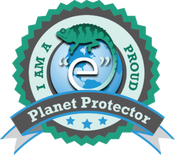|
by Sandra Tiah An agreement reached by MEPs, ministers and the EU Commission on June 15, 2016, states that all but the smallest companies that import tin, tungsten, tantalum, gold and their ores (used in the production of several high-tech devices in the automotive, electronics, aerospace, packaging, construction, lighting, industrial machinery, and tooling industries, as well as in jewelry) from conflict regions must conduct due diligence checks on their suppliers, to prevent this activity from being used to finance conflicts and human rights abuses. Companies would be required to disclose details of products that might contain conflict minerals. The onus will be on Member States’ competent authorities to ensure compliance by companies, and to appoint penalties for non-compliance. The regulation applies to all conflict-affected and high risk areas, primarily the Democratic Republic of the Congo and the Great Lakes area.
The Commission will subsequently review and submit a report to Parliament and the Council on the effectiveness of the new law, and any changes required. 4/10/2024 01:57:35 am
The content on this website is both valuable and informative, expanding my knowledge. Comments are closed.
|
Search Regulatory Compliance BlogBrowse by Topic
All
Browse Archives
January 2020
|

 RSS Feed
RSS Feed
